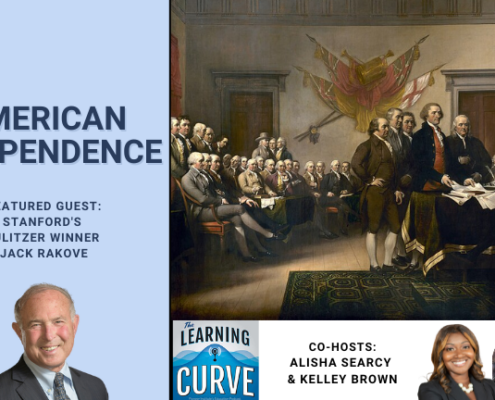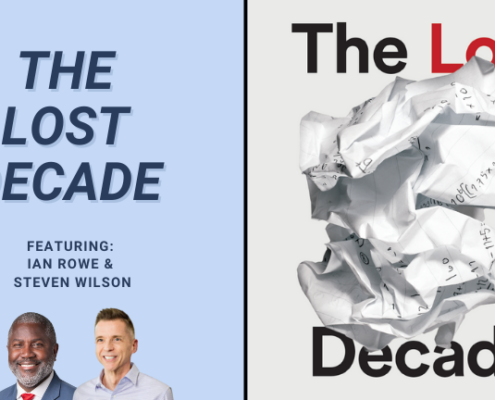The Institute of Justice and PNELF filed a federal constitutional challenge to Massachusetts’s denial of special education services to children whose parents exercise their fundamental right to enroll them in private school.
Pioneer Research
In this week’s episode of The Learning Curve, co-hosts U-Arkansas Prof. Albert Cheng and Walter Blanks interview Dr. Michael Fitzpatrick, who has served as superintendent-director of the Blackstone Valley Vocational Regional School District since 1994. A leader in vocational-technical education, Dr. Fitzpatrick reflects on his own educational journey and offers insights into leadership that puts students first. He discusses how Massachusetts’ voc-tech schools used the 1993 Education Reform Act’s accountability tools like MCAS, standards, and school choice, to drive achievement, particularly for students with diverse learning needs.
Two major education provisions of the One Big Beautiful Bill (OBBB), signed into law on July 4, 2025, garnered a lot of ink and debate—a federal School Choice Tax Credit and an excise tax on the investment income of private universities with large endowments.
In this week’s episode of The Learning Curve, co-hosts Alisha Searcy and Massachusetts civics teacher Kelley Brown interview Pulitzer Prize-winning historian Jack Rakove, Coe Professor Emeritus at Stanford University. Prof. Rakove explores the origins of the American Revolution and U.S. Constitution through the lives of the nation’s Founding Era figures. Reflecting on young John Adams’ vivid depiction of his schoolhouse in colonial Massachusetts, Rakove offers context for the political and social landscape of the 18th-century America.
In this special episode of The Learning Curve, guest co-host Ian Rowe interviews Steven Wilson, a senior fellow at Pioneer Institute and founder of the Ascend Charter Network. Their discussion centers on Wilson's new book, The Lost Decade, which concerns education's shift away from liberal arts and toward social justice ideology and anti-intellectualism.
In this week’s episode of The Learning Curve, co-hosts Alisha Searcy and U-Arkansas Prof. Albert Cheng interview John Burt, the Paul Prosswimmer Professor of American Literature at Brandeis University. Prof. Burt offers rich insight into the life and work of one of the 20th century’s greatest American writers, Robert Penn Warren. Raised in rural southwestern Kentucky, Warren was deeply shaped by the legacy of the Civil War, which he explored in his influential 1961 work, The Legacy of the Civil War, and throughout his poetry and fiction.
BOSTON — Out-of-pocket drug costs for seniors may rise under President Trump’s Most Favored Nation (MFN) proposal if policymakers do not address the role of pharmacy benefit managers (PBMs), according to a brief released today by the Pioneer Institute.
Boston — June 24, 2025 — The Pioneer New England Legal Foundation (PNELF) has sent a formal notice to Massachusetts Department of Revenue Commissioner Geoffrey Snyder asserting that the City of Boston is unlawfully retaliating against commercial real estate owners who seek to challenge their tax assessments.
In this week’s episode of The Learning Curve, co-host Alisha Searcy and guest co-host Walter Blanks interview Shaka Mitchell, senior fellow at the American Federation for Children. Mr. Mitchell shares about his compelling personal and professional journey in education reform. Shaka discusses how his formative experiences shaped his passion for expanding charter public schools, school choice, and empowering families.




















